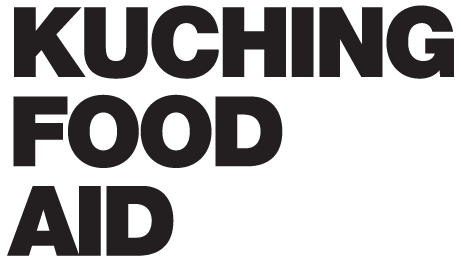The Kuching Food Aid project
By AZIZUL RAHMAN ISMAIL, 10 MAR 2021
What started off as a family effort to help unfortunate families turned into a community-led initiative instead
IT began with a message asking for help. Because of Covid-19, Kuching was on lockdown and was designated as a red zone. It left thousands of families in East Malaysia in need of aid, placing local non-governmental organisations (NGO) and charities under heavy strain.
Shen-Tel Lee received the message in October. It asked if she could help families who were affected by Covid-19. At the time, she and her family were mourning the passing of Tan Sri Ting Pek Khiing, her father-in-law.
Lee, a graphics designer, is a mother of two. She is also the owner of three wardrobe accessories businesses – Sereni and Shentel, Bowerhaus and The Playground Borneo.
Realising how dire the situation was, she used her digital platforms to amplify the call for help.
“In less than 24 hours, I managed to raise RM30,000. Even days later, the funds kept coming in.
“I began reaching out to local charities, meeting with NGO and ex-welfare workers to see where I could channel the funds. However, they all responded that they needed food and they needed it fast,” she said.
Because of the movement control order and the standard operating procedures they had to follow, Lee, along with her family, all 22 of them, who were stranded in Kuching, turned their attention to packing aid items for those in need.
Using her influence, she put out another call on her digital platforms to suppliers who could provide essential items at charity rates. Within 48 hours, Lee had secured enough to help a family for two weeks.
“Speaking to volunteers helped me a lot and visiting the families to see their living conditions helped to determine what would be packed in the aid packages,” she added.
In the following six weeks, her in-law’s home turned into a food aid headquarters where people dropped off donations, both essential and luxury items, which were then packed as supplies arrived every day.
Her efforts caught the eye of local malls, which took the cue to set up donation bins.
“For the month of December, Green Heights Mall, The Spring and Plaza Merdeka placed a giant bin for the community to donate food. The response was incredible. The community came together in droves,” said Lee.
The donated items from the community were collected, sorted and packed daily by her family. The combined effort enabled Lee and her family to help 2,000 other families in a span of six weeks.
“During that time, I met so many amazing people with the biggest hearts. Many of them are struggling themselves but they saw the true picture of the different kampungs I visited, through the videos and images I shared.
“They all said the same thing: ‘We always knew the urban poor were all around us, we need to do more to help’,” recounted Lee.
By December, Lee, her family and the volunteers had to rethink their plan to make the endeavour sustainable. The plan that they came up with was to get supermarkets involved through their corporate social responsibility programmes.
She met the management of six local supermarkets and they all agreed to the idea.
Together, with the cooperation of the supermarkets and suppliers, they produced a RM50 food aid box containing essentials such as rice, eggs, biscuits, dry beehoon, canned sardines, canned pickled lettuce, sweet soy sauce, sugar, flour and cooking oil. The whole effort took three days.
The effort was dubbed “Kuching Food Aid” (KFA), with over 4,000 families benefitting from their efforts.
“Maybe it was the timing, maybe it was luck. Maybe it was the fact that we have such a small but tight community,” said Lee.
The “Kuching Food Aid” boxes are also sold at supermarkets and the public can buy them directly.
“The box is a token for the donation. The reason we have the box is to make it easier for supermarkets to capture the donation. We get a weekly report on how much aid was sold. We then plan how many will be packed and collected by a volunteer.
“Once a number is set, the supermarket will start to pack the aid. We aim to keep a rolling credit with supermarkets so that the food will be connected to charity organisations whenever they need it,” explained Lee.
When Kuching was recently hit by floods, KFA teamed up with Bowerhaus and bedding manufacturer Dreammaster to set up an aid project to provide mattresses and pillows for those affected.
“To date, we have helped more than 4,000 families with food and 1,253 bedding sets for Kuching flood victims,” said Lee.

